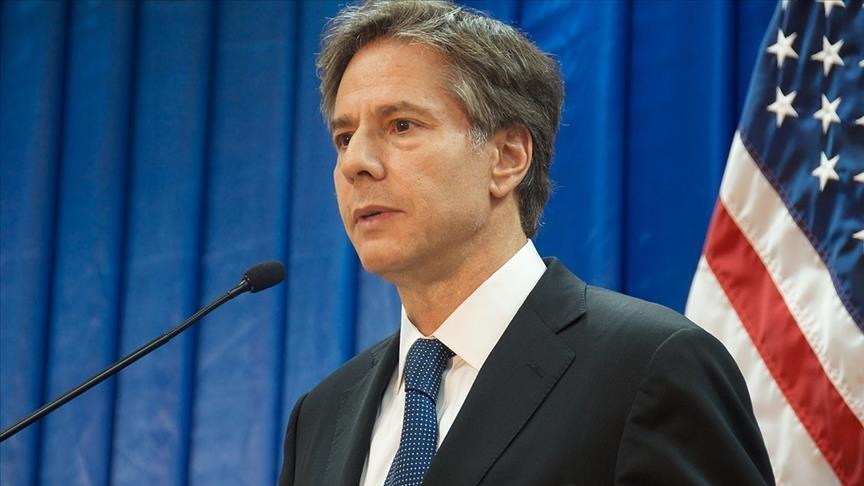
U.S. President Joe Biden's recognition of 1915 events as genocide is not seeking to pin blame on Turkey, Secretary of State Antony Blinken said on April 28.
Speaking at a virtual event with foreign media, Blinken said Biden's recognition should not have been any surprise because the U.S. president "expressed views that he's held for many, many years, and he's been very clear about that.”
"As the president noted, the commemoration of Remembrance Day is to honor the victims, not to assign blame. And of course, the focus that we put on this involved events in the waning days of the Ottoman Empire," said Blinken.
Biden called the events of 1915 "genocide" on Saturday, breaking with a long-held tradition by American presidents of refraining from using the term.
Turkey swiftly rejected the term as null and void.
Turkish President Recep Tayyip Erdoğan called Biden's remarks "unfounded, unjust and contrary to the facts about the painful events that took place more than a century ago."
'Critical ally to US'
Blinken said it is important to note that Biden had a good conversation with Erdoğan and there are many, many issues and areas where both nations are working closely.
"Turkey is a critical ally to the United States and NATO. We've partnered on many shared regional interests, global interests," said Blinken.
"We continue to see a strong bilateral relationship, which includes expanded areas of cooperation and effective management, where we have disagreements and like most countries, we do have our disagreements where we owe Turkey the respect of stating our disagreements, clearly, directly, honestly, just as we expect and anticipate the same from Turkey and that's been an important hallmark of our relationship," he added.
He also warned Ankara and others from further purchases from Russia. Turkey has said it was in talks with Russia on
procuring a second batch of S-400s.
"It's also very important going forward that Turkey, and for that matter all U.S. allies and partners, avoid future purchases of Russian weaponry, including additional S-400s," Blinken said.
"Any significant transactions with Russian defense entities, again, could be subject to the law, to CAATSA, and that's
separate from and in addition to the sanctions that have already been imposed," he said, referring to Countering America's Adversaries through Sanctions Act, which is designed to dissuade countries from buying military equipment from Russia.